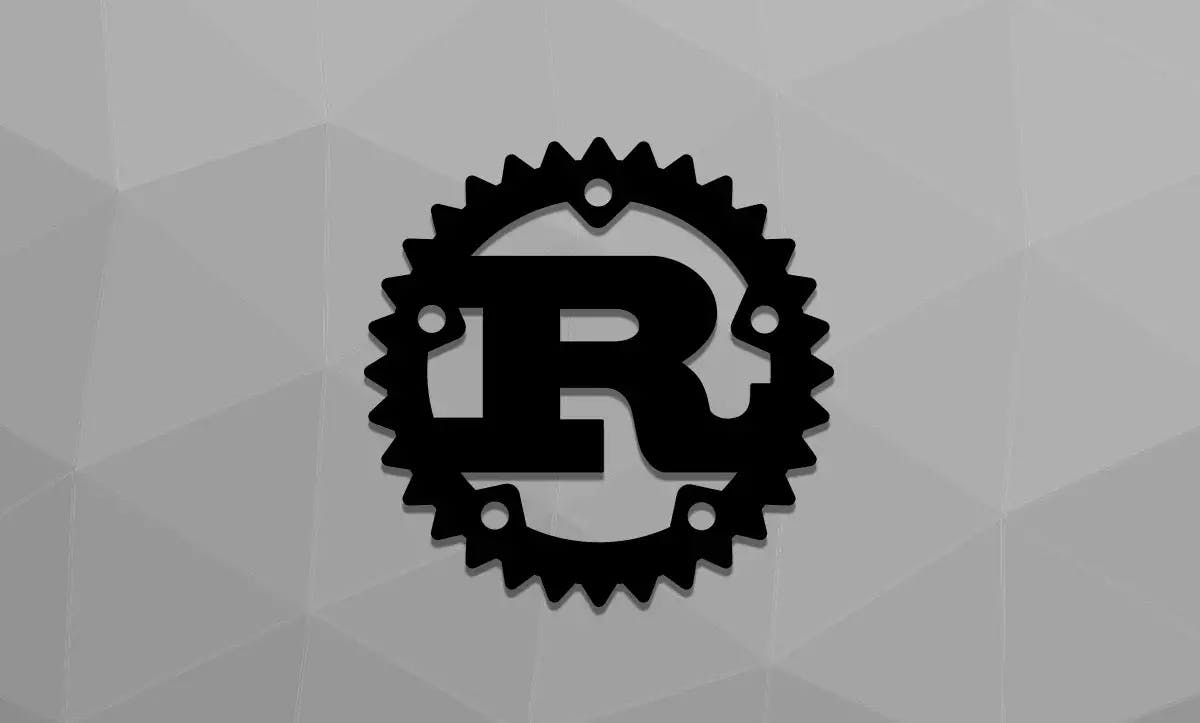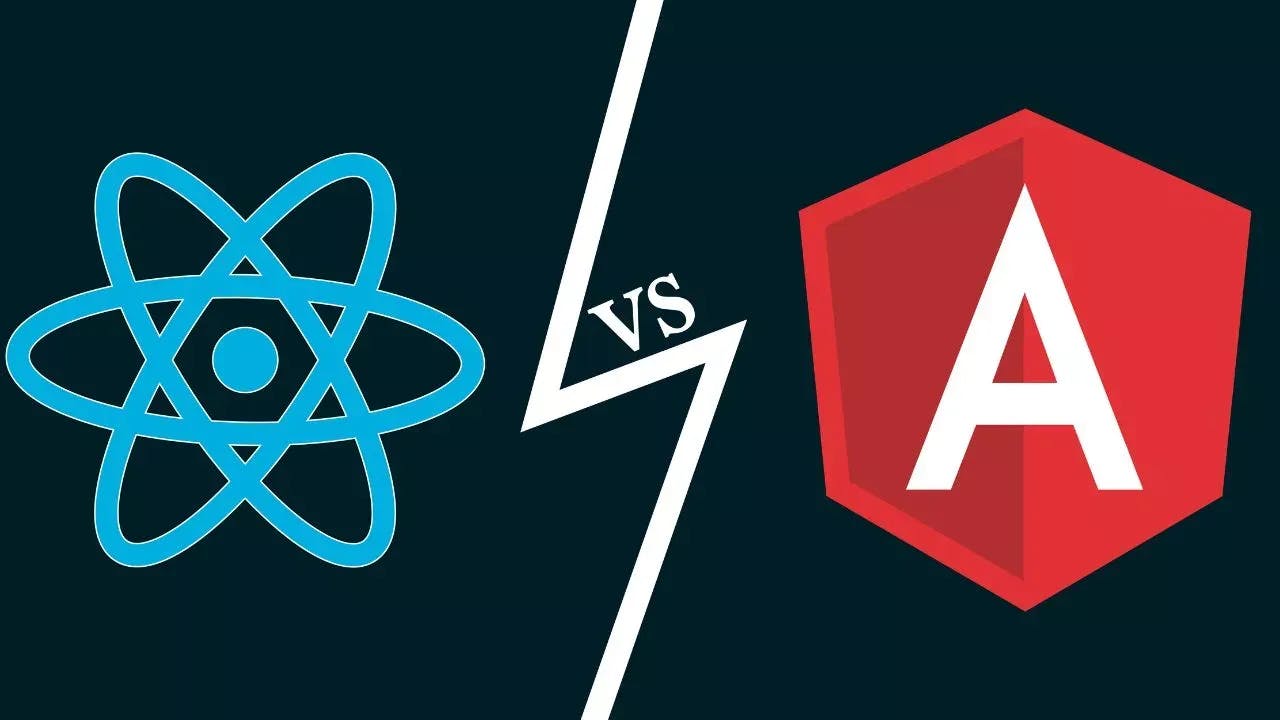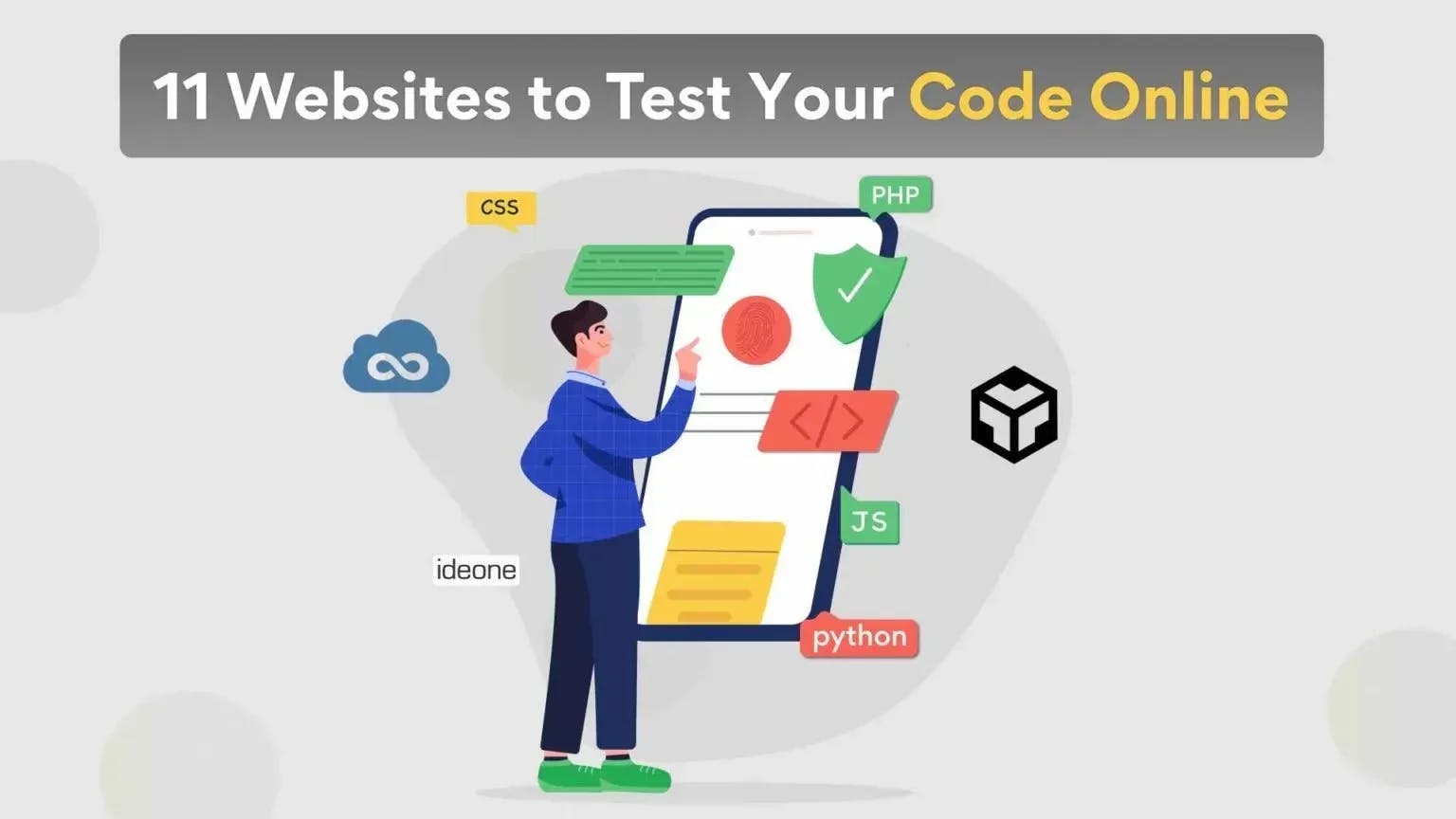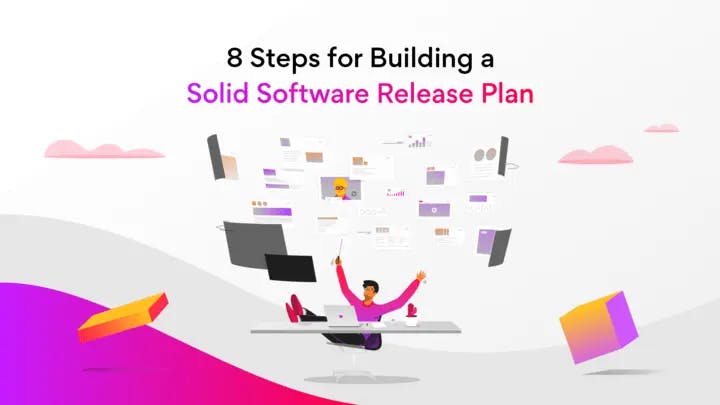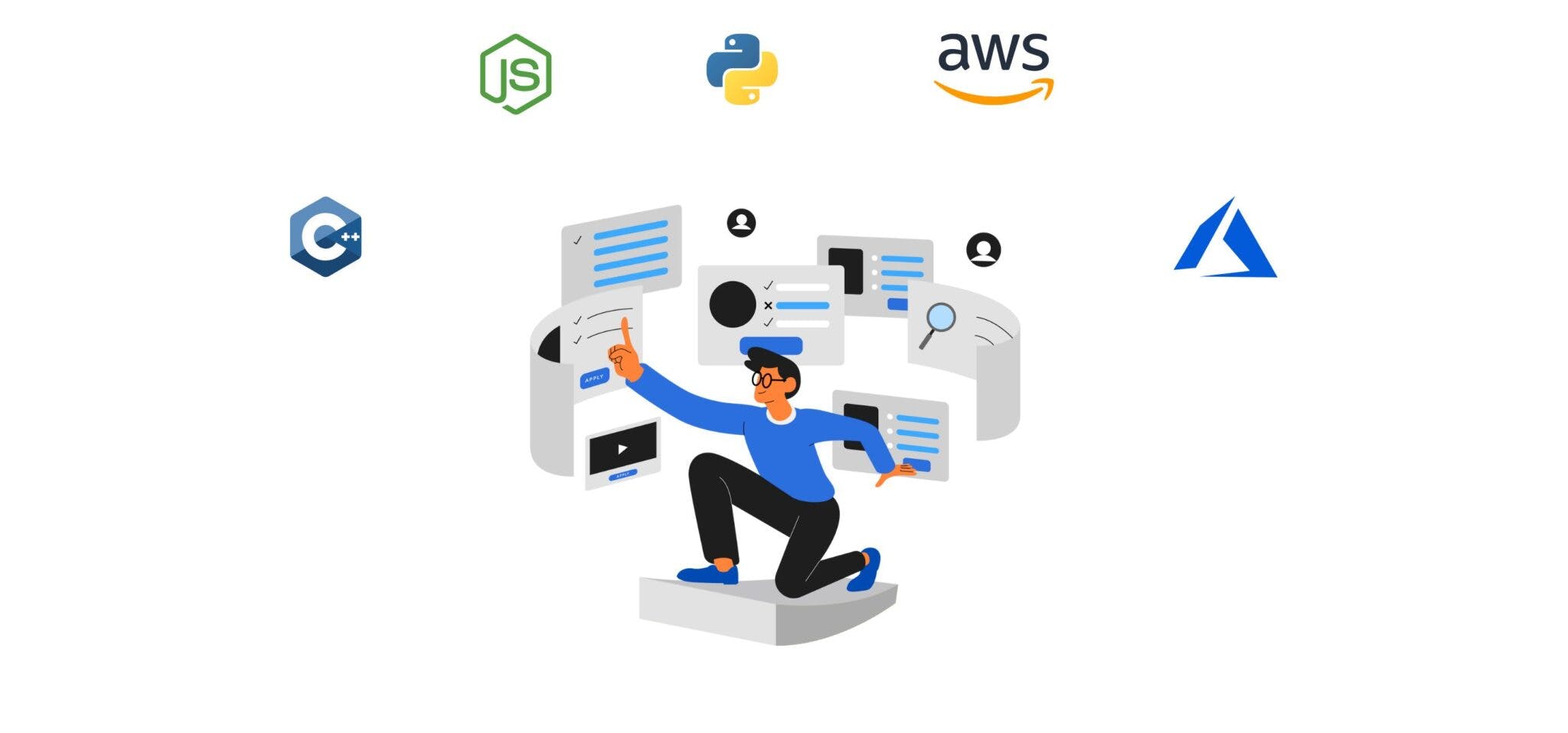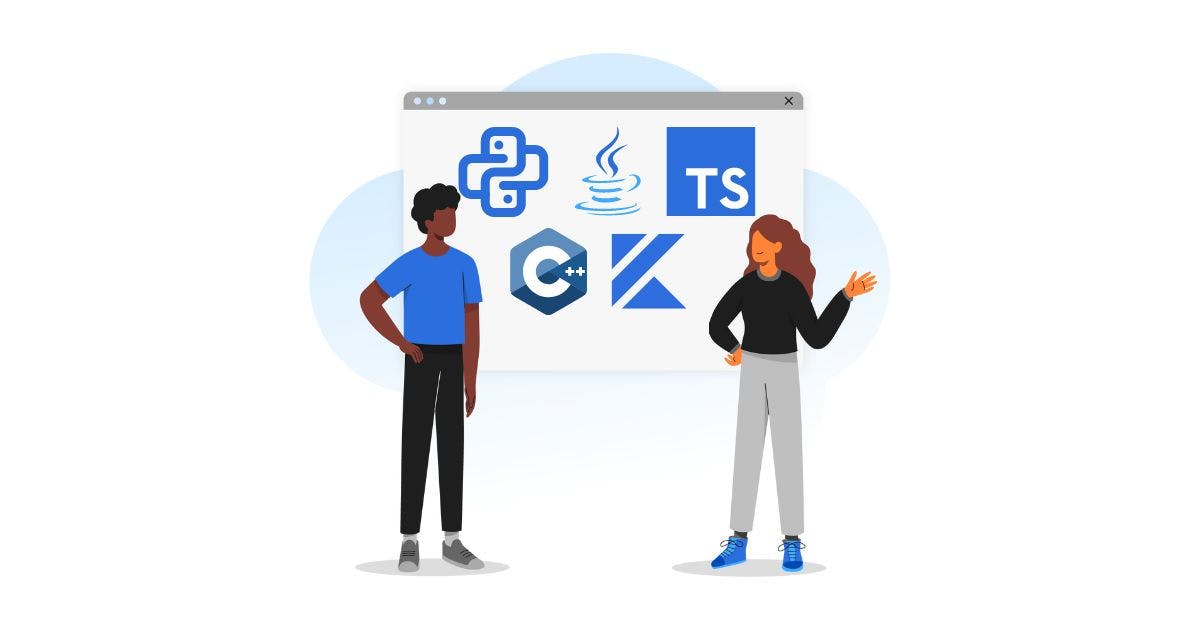Remote Python/Docker back-end engineer jobs
We, at Turing, are looking for highly-skilled remote Python/Docker back-end engineers who can participate in design, development, integration, and maintenance of the automated deployment flow and implement the containerization strategies. Get a chance to work with top U.S. companies and accelerate your career.
Find remote software jobs with hundreds of Turing clients
Job description
Job responsibilities
- Implement object-oriented design, design patterns, and multi-tier client-server architecture
- Take responsibility of integrating and defining containerization technologies
- Build, scale, and monitor highly scalable applications and implement CI/CD pipelines
- Collaborate with stakeholders and clients to define the architecture and product roadmap
- Build and maintain highly available systems on Docker and implement an auto-scaling system
- Keep up-to-date with the advanced technologies and automation practices
Minimum requirements
- Bachelor’s/Master’s degree in Engineering, Computer Science, IT (or equivalent experience)
- At least 3+ years of experience in back-end development (rare exceptions for highly skilled developers)
- Strong expertise in Python development, Django or similar frameworks
- Significant experience on automation, DevOps, Docker, and container networking
- Working experience with high availability, compute-intensive distributed applications
- Understanding of machine learning and artificial intelligence algorithms
- Comprehensive knowledge of operations and systems administration, specifically Linux
- Strong understanding of Docker, and/or cloud deployment technologies
- Knowledge of Docker-compose, Docker Swarm, and Docker Engine
- Expertise in application deployment using CI/CD pipelines
- Fluency in English language for effective communication
- Ability to work full-time (40 hours/week) with a 4 hour overlap with US time zones
Preferred skills
- Working knowledge of GNU/Linux
- Familiarity with monitoring tools like Prometheus, Grafana, Datadog, etc.
- Knowledge of alerting tools like OpsGenie, PagerDuty, etc.
- Working experience with Agile methodologies
- Ability to communicate ideas to team members and clients
- Excellent problem-solving and organizational skills
Interested in this job?
Apply to Turing today.
Why join Turing?
1Elite US Jobs
2Career Growth
3Developer success support
How to become a Turing developer?
Create your profile
Fill in your basic details - Name, location, skills, salary, & experience.
Take our tests and interviews
Solve questions and appear for technical interview.
Receive job offers
Get matched with the best US and Silicon Valley companies.
Start working on your dream job
Once you join Turing, you’ll never have to apply for another job.

How to become a remote Python/Docker backend engineer?
Python/Docker back-end coders are among today's freed professionals in the IT market, and competition for top positions is strong. Python is one of the most popular online programming languages, and its popularity is growing all the time, especially in startup environments where time and money are typically restricted.
Docker is a group of PaaS products designed to simplify the process of designing, deploying, and operating applications using distinct pieces known as "containers" as simple as possible. Docker uses virtualization to provide software in packages, simplifying and accelerating workflows while also allowing developers to experiment with their preferred tools, application stacks, and deployment environments.
The need for Python/Docker back-end expertise has increased due to the benefits of the Python/Docker. Therefore, remote Python/Docker back-end engineer jobs are a fantastic opportunity for programmers. In the following sections, let me tell you more about becoming a Python/Docket engineer.
What is the scope in Python/Docker back-end development?
Python has been chosen as one of the most popular programming languages, beating out C, C++, and Java. Spotify, in particular, analyzes user data and employs Python in its back-end services to create accurate playlists and suggestions. On the other hand, Dropbox builds native apps on any platform using Python scripts (Windows, macOS, Linux, iOS, Android, etc.).
Docker has been hailed as the next-generation virtualization technology. Thanks to companies like Netflix, Spotify, PayPal, and Uber, who use the containerization system, its popularity is rising. Because of its lean and secure approach, containerization technology is increasingly being employed in full VMs to build reproducible and scalable environments. Therefore, engineers with Python/Docker skills are in high demand.
Are you looking for remote Python/Docker back-end engineer jobs? Let's take a closer look at how to become a Python/Docker back-end engineer now.
What are the roles and responsibilities of a Python/Docker back-end developer?
After landing Python/Docker back-end engineer jobs, the following are some of the most important responsibilities.
- Implement object-oriented design, design patterns, and a multi-tier client-server architecture
- Hold responsibility for defining and integrating containerization technology.
- Implement CI/CD pipelines to build, scale, and manage extremely scalable applications.
- Define the architecture and product roadmap in collaboration with stakeholders and clients.
- Create and maintain highly available Docker systems and an auto-scaling solution.
- Maintain a working knowledge of advanced technologies and automated processes.
How to become a Python/Docker back-end engineer?
Even though remote Python/Docker back-end engineer jobs necessitate a high degree of competence and expertise, anyone with a genuine interest in the field—and the ability to fulfill at least some of the responsibilities described above for a Python/Docker back-end engineer—is eligible to apply.
There are a number of different ways to learn the skills required to find remote Python/Docker back-end engineer jobs. When it comes to entering the field of Python/Docker back-end development, a computer science degree will provide you with a strong foundation and credentials. However, if you didn't do well in high school, you may be unable to enroll in a college that will help you find Python/Docker back-end engineer jobs.
Another way to become a successful Python/Docker back-end engineer is to enroll in a short-term boot camp program. The emphasis will be on teaching you the languages you'll need to apply in person or online for remote Python/Docker back-end engineer jobs. This could be a more affordable and less time-consuming option than a three- or four-year degree.
You can be confident that no matter which path you choose to become a remote Python/Docker back-end engineer, you will have a bright future and many opportunities in Python/Docker back-end engineer jobs ahead of you.
Interested in remote Python/Docket Backend engineer jobs?
Become a Turing developer!
Skills required to become a Python/Docker back-end engineer
Learning the relevant skills is the first step toward securing high-paying Python/Docker back-end developer jobs. Let's look at each technical skill necessary for remote Python/Docker back-end engineer jobs in more detail.
1. Python frameworks
Python frameworks let developers save time by removing the need to worry about low-level details like sockets, protocols, and threads. Once learned, frameworks like these can make life easier for a one-handed Python/Docker back-end developer. Since a framework can essentially save you the trouble of typing boilerplate code, a Python framework can help you build a prototype application rapidly.
2. Python libraries
One of the best things about Python is that it has one of the most comprehensive libraries available. There's a significant probability that what you're trying to do has already been done and is complete with the necessary documentation. Since a Python/Docker back-end developer will utilize the Python ecosystem's packages virtually every day, a clever developer should be experienced enough to identify, study, and appropriately implement them.
3. Knowledge of front-end technologies:
You may be mistaken if you believe that you will solely work with back-end technologies after landing remote Python/Docker back-end engineer jobs. A Python developer works primarily with front-end technologies to ensure that the client-side and server-side are in sync. The UI/UX team, project managers, and SCRUM masters are mainly encountered to organize the workflow in a corporate environment better.
4. Machine learning and artificial intelligence
Machine learning and artificial intelligence have recently experienced a surge in popularity. The reason being the industry's rapid innovation and its corresponding rate of adoption of such breakthroughs. Since ML and AI are extremely safe technologies, you must understand their fundamental principles and methods to fetch remote Python/Docker back-end engineer jobs.
5. Data science
When working on projects involving big volumes of data, understanding data science is also essential. So, learn data science before you apply for remote Python/Docker back-end engineer jobs. You'll have no issue giving your stakeholders a clear picture of your observations with the accompanying outliners once you've proven your ability to capture, analyze, visualize, and anticipate information from your data.
6. Using Docker machine and Docker client
Rather than executing containerized apps locally using Docker for Mac/Windows or a Linux machine, deploying them on the cloud is necessary. Docker-machine is a tool that makes it easy to create a remote virtual machine (VM) and manage containers. It allows you to control the docker engine of a VM created with docker-machine from a distance. It also lets you do things like update the Docker engine, restart the virtual machine (if the driver supports it) and check its status. When you need to create a deployment environment for your application and manage all of the microservices that run on it, Docker-machine comes in handy. You can use your machine to access a development, staging, and production environment and update them as needed.
7. Create custom Docker images
Understanding how to create Docker images for apps is essential to get hired for remote Python/Docker back-end engineer jobs. This is an important skill, whether you're just getting started with containerizing applications or diving deeper into Kubernetes development.
8. Interacting with Docker containers
Containers are intended to be self-contained. They can, however, use networking to send and receive requests to other programs. For example, a web-server container may expose a port to accept requests on port 80. An application container could also be linked to a database container. Some programs read and write files to exchange data. These programs can communicate by writing their files to a shared disc that other containers can access. A data processing program, for example, might write a file containing client data to a shared disc, which is then accessible by another program. On the other hand, two identical containers might share the same files. Understand the basics of Docker containers to fetch the best Python/Docker back-end engineer jobs.
Interested in remote Python/Docket Backend engineer jobs?
Become a Turing developer!
How to get remote Python/Docker back-end engineer jobs?
We've seen the skills required to get hired for remote Python/Docker back-end engineer jobs. When training, the most important thing to remember is to give it your best. Every day, new technological breakthroughs impact Python/Docker back-end development. As Python/Docker back-end programming gets more popular, more people will enter the field, increasing your competition. That won't stop you from achieving success in your profession if you strive to be the best version of yourself and stay current with the latest trends.
Turing provides the best remote Python/Docker back-end engineer jobs that help you meet your Python/Docker back-end engineer goals. You'll also have the chance to refine your skills by working on complex technical problems with other brilliant engineers. Join a global network of the best Python/Docker back-end professionals to find full-time, long-term remote Python/Docker back-end engineer jobs that pay more and allow you to progress professionally.
Why become a Python/Docker backend engineer at Turing?
Elite US jobs
Long-term opportunities to work for amazing, mission-driven US companies with great compensation.
Career growth
Work on challenging technical and business problems using cutting-edge technology to accelerate your career growth.
Exclusive developer community
Join a worldwide community of elite software developers.
Once you join Turing, you’ll never have to apply for another job.
Turing's commitments are long-term and full-time. As one project draws to a close, our team gets to work identifying the next one for you in a matter of weeks.
Work from the comfort of your home
Turing allows you to work according to your convenience. We have flexible working hours and you can work for top US firms from the comfort of your home.
Great compensation
Working with top US corporations, Turing developers make more than the standard market pay in most nations.
How much does Turing pay their Python/Docker backend engineer?
At Turing, every Python/Docker backend engineer is allowed to set their rate. However, Turing will recommend a salary at which we know we can find a fruitful and long-term opportunity to grow your Python/Docker backend engineer career. Our recommendations are based on our analysis of current market conditions and the demand that we perceive from our customers.
Frequently Asked Questions
Latest posts from Turing
Leadership
Equal Opportunity Policy
Explore remote developer jobs
Based on your skills
- React/Node
- React.js
- Node.js
- AWS
- JavaScript
- Python
- Python/React
- Typescript
- Java
- PostgreSQL
- React Native
- PHP
- PHP/Laravel
- Golang
- Ruby on Rails
- Angular
- Android
- iOS
- AI/ML
- Angular/Node
- Laravel
- MySQL
- ASP .NET
Based on your role
- Full-stack
- Back-end
- Front-end
- DevOps
- Mobile
- Data Engineer
- Business Analyst
- Data Scientist
- ML Scientist
- ML Engineer
Based on your career trajectory
- Software Engineer
- Software Developer
- Senior Engineer
- Software Architect
- Senior Architect
- Tech Lead Manager
- VP of Software Engineering







